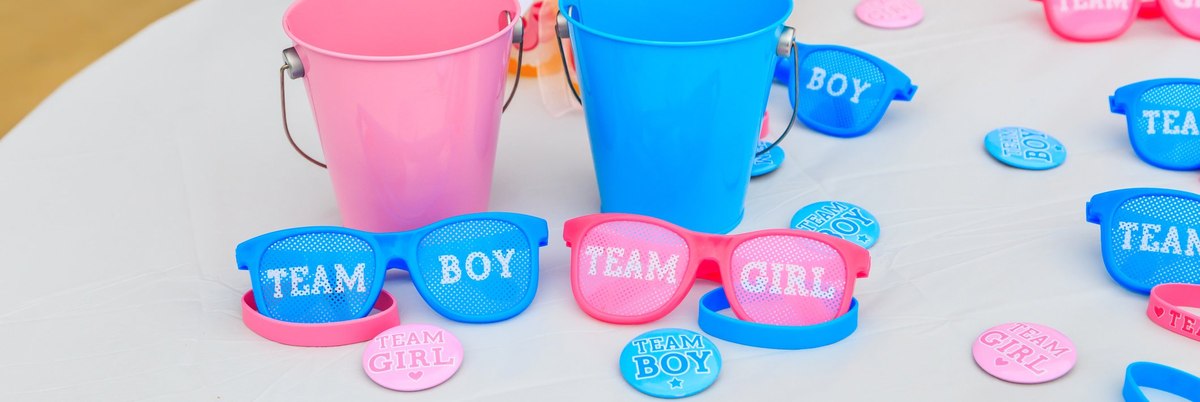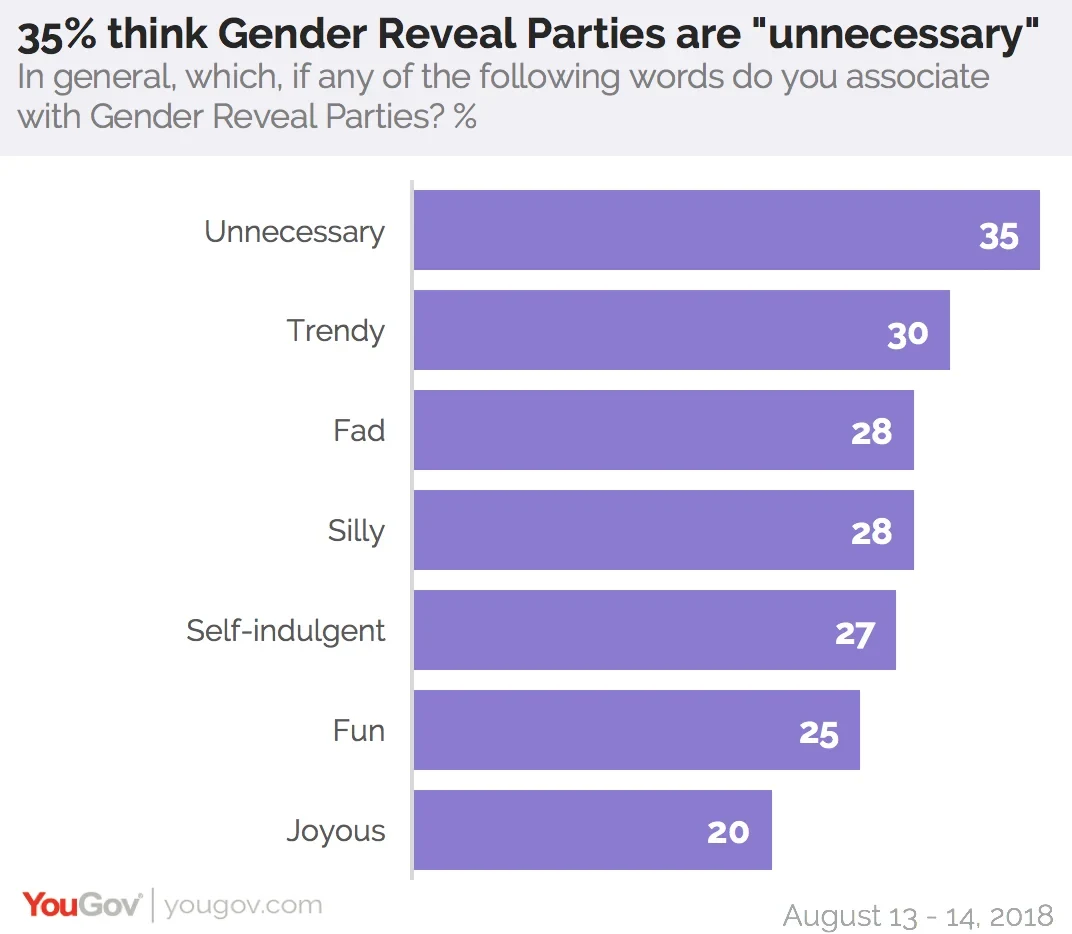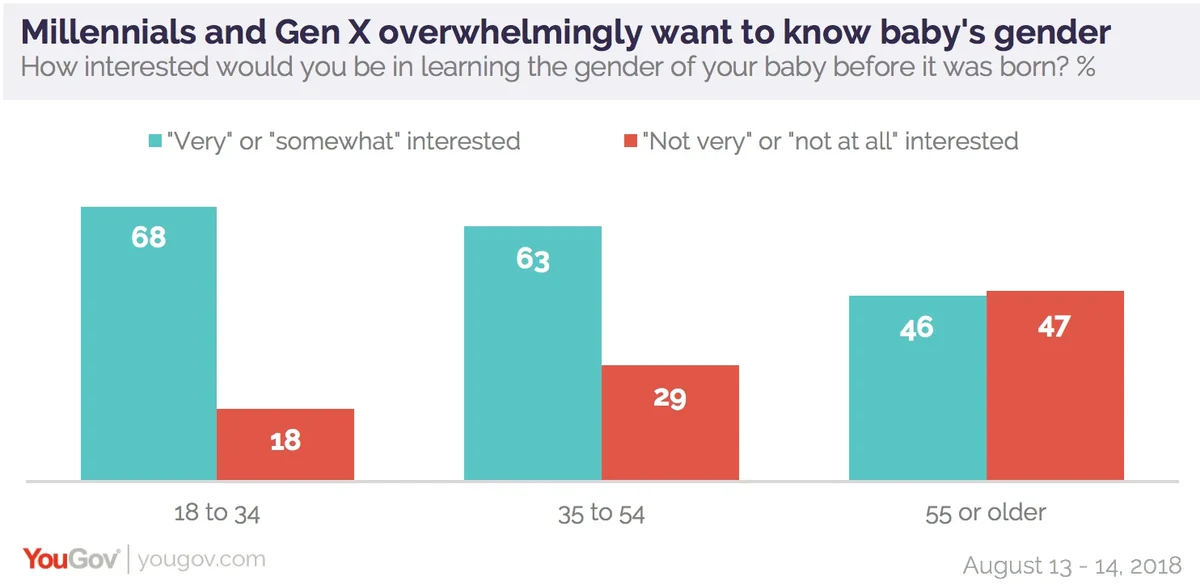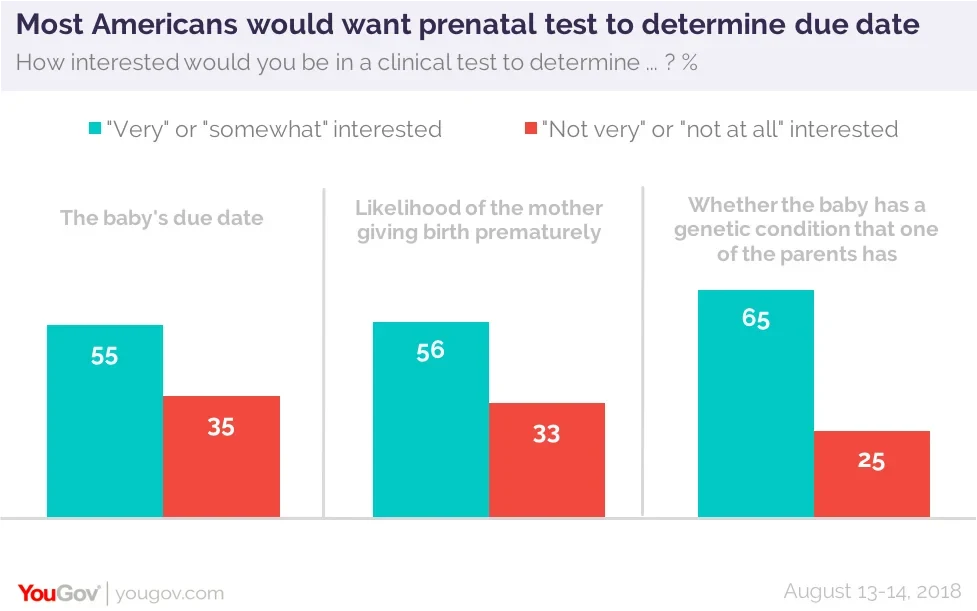
What Americans really think of gender reveal parties
"Trendy," "fun," and "joyous" were some of the words Americans used to describe gender reveal parties
Though many people say they’d want to know their child’s gender before they were born, Americans have mixed emotions about gender reveal parties, where parents-to-be find out if they’re having a boy or a girl.
More than one-third (35%) of Americans say these parties are “unnecessary,” 30% say they’re “trendy,” 28% say they’re “silly,” and another 28% say they’re a “fad,” according to new data from YouGov Omnibus.

Though they might think a party to celebrate the baby’s gender is unnecessary, over half (58%) of people say that they would be interested in learning their baby’s gender before it was born. Millennials and Gen X’ers are more likely to be interested in learning this, with roughly two-thirds of people in both groups saying they would want to know. Baby boomers were almost evenly split: 46% say they would be interested; 47% say they would not be.

Slightly more than half (55%) also say they would be interested in a clinical test to accurately determine the baby’s due date; a near-equal amount (56%) would be interested in a test to determine the likelihood of the mother giving birth prematurely. About two-thirds (65%) would be interested in determining whether the child has inherited genetic medical conditions from either parent.

Although many people would want to take clinical prenatal tests to learn about their child, most say they wouldn’t want to change anything about them. When asked about hypothetically choosing certain personality or physical traits for their children, slightly more than 50% were “not at all interested” in both cases. However, more people (40%) say they would be interested in using genetic modification to remove “undesirable genetic conditions and predispositions.”
Nearly three-fourths (72%) of people say that they would want to screen for any potential medical issues (including non-genetic conditions). About one-third (32%) say that if they found out their child had a serious medical issue, it wouldn’t change their feelings about becoming a parent. Another 15% say it would “strongly” change their feelings about becoming a parent, while 17% say it would “somewhat” change their feelings.
When it comes down to it, most Americans agree that despite what any prenatal test says about a child, it’s what happens after they’re born that really counts. Over half (57%) agreed with the statement “nurture is more important than nature when it comes to children.”
See full results here.
Learn more about YouGov Omnibus.
Image: Getty

































